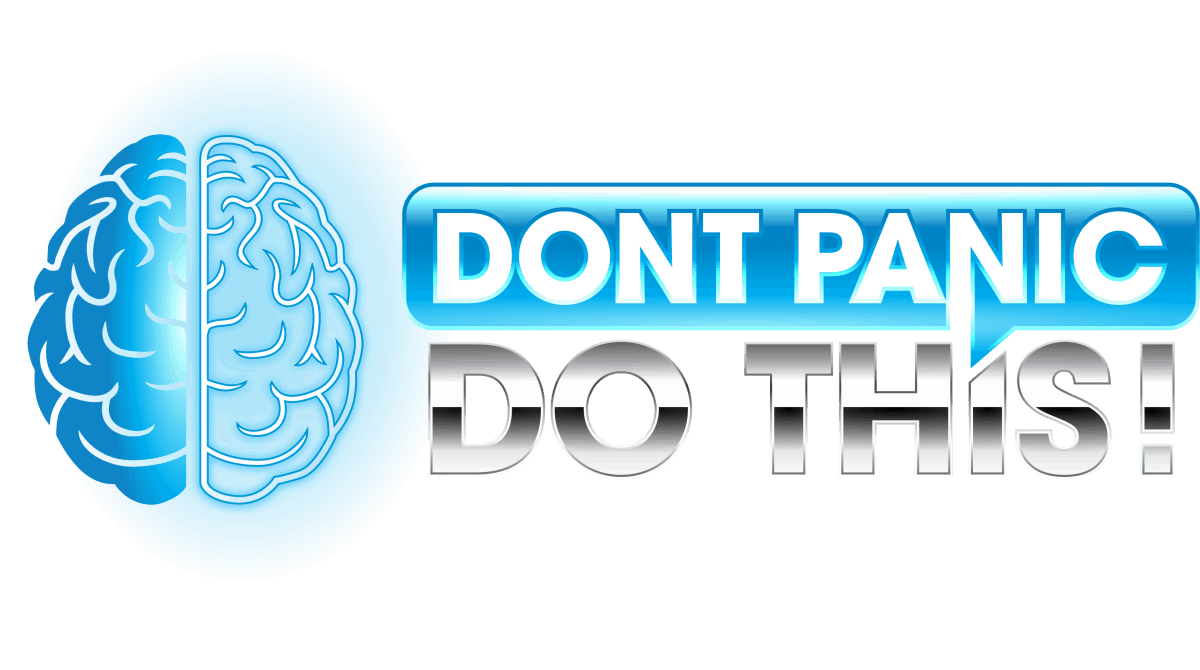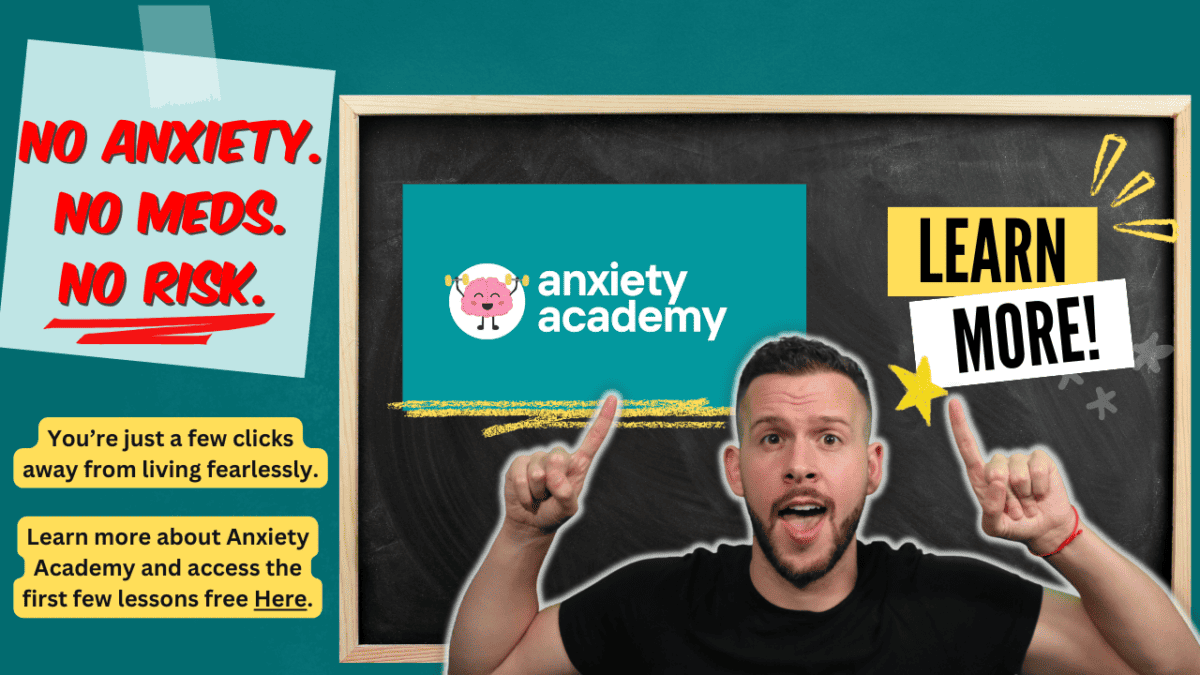When you think about high-functioning anxiety symptoms, it's not difficult to imagine many of them applying to either a close acquaintance or yourself! Of course, not everyone feels the same symptoms; anxiety is a highly personalized experience that manifests in many different ways. There are, however, some commonalities to look out for.
Do you feel that you have anxiety, but you haven't been diagnosed with a disorder? Or have you been diagnosed with an anxiety disorder but think that some of your symptoms don't really fit the diagnosis? Listed below are the most common symptoms of high-functioning anxiety, often missed by sufferers and doctors alike.
High-Functioning Anxiety Symptoms:
1. Perfectionism
Perfectionism is a symptom of both generalized anxiety and a common symptom of high-functioning anxiety. The need for things to be absolutely impeccable is compulsive; if things aren't perfect, you may fear being judged for it. You may be afraid of people thinking less of you, or even outright disliking you, for your imperfections. This can make even casual events extremely difficult.
2. Insomnia

One of the more common symptoms of high-functioning anxiety is having trouble sleeping. his could mean waking up early, before your alarm, and being unable to fall back asleep, or not being able to fall asleep at all.
The struggle with sleep is deeply rooted in anxiety and can often be an anxiety symptom. Someone may be functioning on just a few hours of sleep, look great, and appear fully functioning despite their anxiety. However, these people might feel awful and be operating on auto-pilot. This common high-functioning anxiety symptom can often be mistaken for insomnia or disinterest in rest.
People with anxiety often have trouble sleeping because their minds won't turn off and relax before bed. Unable to relax, they may wake up early, unable to get back to sleep; their mind filled, perhaps, with what needs to be done tomorrow.
(Check out this article for some great tips on reducing anxiety before bed!)
3. Feelings of Dread
Anxiety can involve a nearly constant feeling of dread for some people. This dread extends to high-functioning anxiety because high-functioning anxiety is typically observed in people who are able to outwardly cope with stressors, even while inwardly panicking throughout the day.
This could involve dreading a report they have to give later in the day, dreading the need to brush their teeth, dreading having to leave their house, and more. Despite their fears, people with high-functioning anxiety often do those things anyway, frequently hiding the dread that they feel within.
4. Workaholism
Workaholism is yet another high-functioning anxiety symptom. "Workaholics" may feel the need to fill their time with work, and become worried or stressed when they aren't keeping busy.
Being a workaholic often goes unrecognized as a symptom of anxiety. This is because most workaholics come into work early and leave late, turn their projects in on time or early, constantly take on extra work, and are generally stellar employees. However, on the inside, they may be struggling with their image, stressing about the work, or even procrastinating until the last minute to finish those projects.
5. Difficulty Expressing Emotions
It's hard for those with high-functioning anxiety symptoms to express their emotions, and sometimes they don't want to put in the work to do so. Expressing emotions can be hard and extremely uncomfortable (and uncomfortable situations are generally avoided by the anxious).
It may take a lot to get an anxiety-prone person to feel safe sharing their emotions out loud or in social situations. However, respecting these boundaries is important if you ever wish for someone to feel comfortable enough to open up emotionally in the future.
6. Irritability

Irritability is commonly missed as a symptom of anxiety. In high-stress moments, it's understandable when someone acts out of anger or irritability. Stress can cause us to be curt and sharp with how we speak to people.
This sometimes happens when others don't consider a situation to be stressful, but someone with high-functioning anxiety does. In such situations, an anxious person might snap at another person seemingly "out of the blue." This can be because they're feeling a great deal of anxiety that they have simply hidden well.
7. Difficulty Saying "No"
Those with high-functioning anxiety often have a hard time saying no. They feel that they must be able to do what people ask them to and do it well. They might feel bad and be affected by the perceived thoughts of the person they've denied. If they said "no" to that person, what would they think?
This isn't a symptom commonly attributed to anxiety but is usually thought of as a standalone problem. Upon closer inspection, however, we can recognize it as a symptom of high-functioning anxiety.
8. People Pleaser
This one goes hand-in-hand with difficulty saying "no", perfectionism, and feelings of dread. When someone has all four symptoms, it's easy to recognize their high-functioning anxiety. However, sometimes one may be present without the other, making it trickier to catch.
Someone who is a people-pleaser might have difficulty saying no, but also be more proactive about helping the people whose opinions they feel will dictate their worth. They want to make other people happy so they don't think about them negatively.
9. Unconscious Nervous Habits
Some people with anxiety have nervous habits such as biting their nails, playing with their hair, or other behaviors that give their restless energy an outlet. This is a visible symptom that even people with high-functioning anxiety will exhibit at times.
Your nervous habit might involve spinning in a rolling office chair, tapping your leg or foot, or something similarly innocuous. Consciously or not, these habits are done to dispel one's nervous energy while they going about their day.
10. Overthinking and Overanalyzing

A common anxiety symptom, someone with high-functioning anxiety may overthink or overanalyze just about anything. Whether it's overanalyzing a conversation with a boss or overthinking a friendly gesture, these thought patterns can be extremely debilitating.
Many people with high-functioning anxiety can easily hide their overthinking and overanalyzing. They do so to avoid being judged by people who might think they are silly for overthinking such things. They may also fear being attacked by others for misinterpreting a situation through over analyzation.
It can be hard to tell if someone with high-functioning anxiety is overthinking. Fortunately, people with high-functioning anxiety are generally able to manage these thoughts most of the time.
11. Fear of Failure
Fear of failure is a huge part of anxiety, and it's usually accompanied by a fear of the unknown. Fearing failure makes doing anything that isn't perfect extremely stressful for those with high-functioning anxiety. Whether the anxiety comes from fearing the failure itself, or the repercussions that come from failure, it doesn't necessarily matter. All of it is a symptom of high-functioning anxiety.
While this can be more of a visible symptom, it can be very subtle. High-functioning anxiety sufferers generally keep their fears to themselves and manage to function in spite of them.
Of course, it's not ideal to stifle and hide these fears without addressing them. From time to time, these fears can be valid, and rational even. Even if your anxiety is high-functioning in nature, you will still want to acknowledge, address, and overcome these fears in time.
12. Fatigue

Fatigue is something easily missed even when it isn't related to anxiety. Fatigue can happen for a number of reasons, but it can absolutely be a symptom of just about any anxiety disorder or high-functioning anxiety.
Those who struggle with fatigue may be tired constantly but do their best to function anyways. They might entertain thoughts like "I'm not tired, just stressed" or "I shouldn't be tired. I had a lot of sleep." They may forget to stop and think about what might be causing them to get less rest, and instead power on through in hopes that they'll get everything done.
Fatigue can have physical symptoms that show, such as bags under the eyes, and less energy in general. For some people, however, fatigue as a high-functioning anxiety symptom can be hidden pretty well. Anxiety sufferers might have a variety of reasons for hiding or ignoring fatigue. The most common concern is often a fear of judgment; that their outward image of a put-together person might be questioned.
13. Procrastination with Crunch-Time
Procrastination is a symptom that most would miss entirely since it's usually a very private thing. Procrastination isn't necessarily a desire not to do something, but an inability to start. This can sometimes stem from the feeling that a person isn't prepared for a task, or that it will turn not out the way they want. Over time, the anxiety that the task won't go smoothly builds, and the procrastination drags out.
After that comes crunch time: When people realize they have to get the project done as fast as humanly possible to meet the deadline. For these people, some of their best work happens after they have procrastinated for as long as possible. Unfortunately, this particular symptom of anxiety does a lot more harm than good. While some people might manage to complete work under an immense amount of stress, it's certainly not efficient, ideal, or healthy to do so.
14. Comparing Oneself to Others
This is another invisible mental symptom that most won't notice. If someone with high-functioning anxiety isn't very verbal about their self-comparing with others (hairstyle, clothing, income, etc.), it can be nearly impossible to recognize.
Oftentimes, someone struggling with high-functioning anxiety may note not only the appearance of someone they admire but also their habits and behaviors. These sorts of tendencies can be particularly destructive and toxic, only worsening one's own anxieties.
15. Pattern-like Compulsions or Habits
This is by far the most visible anxiety symptom but can be easy to dismiss when discussing anxiety. Obsessive or compulsive behaviors (like those seen in people with Obsessive-compulsive disorder, or OCD) are so common, that they're often overlooked entirely as symptoms of high-functioning anxiety.
The need to complete certain routines compulsively is a self-soothing pattern that can help one ease anxious feelings. These behaviors are most commonly observed in those with OCD.
OCD and anxiety often go hand-in-hand. Those with OCD feel anxious or uncomfortable if they don't complete their habits, and possibly even complete them in order. This might involve washing their hands each and every time they touch a doorknob or needing to check every lock in the house once per hour.
What to do About High-Functioning Anxiety Symptoms
While many high-functioning anxiety symptoms can be hard to miss, others can go unnoticed for many years. If you think that you have high-functioning anxiety, go to your doctor and discuss all of your symptoms. Fortunately, there are many things that you can do to calm your feelings of anxiety.
Additionally, if you suffer from regular anxiety and feel you could benefit from learning a ton of quick and easy-to-use coping mechanisms, consider checking out our book: Don't Panic, Do This! 100+ Ways to Stop Panic Attacks and Anxiety


